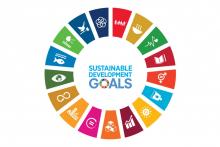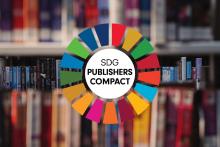Developing countries 'need more SDG research recognition'

Developing nations need greater visibility, acknowledgement and support for their research into the United Nations’ Sustainable Development Goals (SDGs), according to the authors of a major analysis of the past 15 years of worldwide research into SDGs. The analysis – the most comprehensive of its kind to date – has formed the basis of a new White Paper, which said, particularly as those nations are often hardest hit by the issues the UN’s Global Goals are aimed at addressing.
Announced at the recent Global Sustainable Development Congress run by the Times Higher Education (THE), the white paper has been co-authored by researchers from Prince Sultan University, data experts from research technology company Digital Science, and THE.
Commissioned by THE, and using data from Dimensions, the white paper – Research in the Context of the United Nations Sustainable Development Goals in the Developed and Developing World: Evidence From the Past 15 Years – reveals significant gaps in research funding, collaboration and assessment between developed and developing countries.
The white paper unveils the unique challenges confronting lower income countries in attaining visibility and acknowledgment for their contributions towards the SDGs. The authors have sought to redress this imbalance through a series of recommendations, including:
- Targeted interventions to support lower-income countries, promote research infrastructure, and provide funding opportunities to bolster their research capacities and collaborations.
- Continued use of THE Impact Rankings to help address global inequalities and promote strong SDG partnerships between regions.
- Use of comprehensive and (if needed) bespoke metrics that capture the multidimensional aspects of research impact aligned with the SDGs, to provide valuable insights and guide policy-making and funding decisions.
- Incentives at local and international levels to accelerate SDG research and research collaboration between high-income and lower-income countries, to help uplift scholars from countries that suffer from structural, historical and contemporary imbalances of power in the global research ecosystem.
Co-author Ann Campbell, Technical Solutions Manager – Dimensions & Altmetric, Digital Science, said: “Our analysis shows there is a significant gap between higher and lower income nations in relation to SDG research. We can see evidence of growing SDG research in lower income nations over the past 15 years and indeed rising international collaboration within these regions, however, the playing field is far from level. It is encouraging to see that with further collaboration from all sides, it is possible to create a more equitable research landscape, one in which research from lower income countries is both valued and acknowledged for its crucial role in addressing global challenges and advancing the SDGs.”
Co-author Professor Mohammad Nurunnabi, Director of the Center for Sustainability and Climate, Prince Sultan University added: “The SDGs cannot be achieved without the effective involvement of the higher education sector. Policymakers should come together to provide more guidelines to address the gap of research which could be a catalyst to solve many global issues and challenges. Prince Sultan University is strongly committed to this and hence the white paper series could be an eye opener for policymakers.”
Co-author Dr Ishan Cader, Director of Consultancy, THE, said: “At the moment, scholars from developing countries are massively under-represented in the global research discourse on sustainability and they suffer from a lack of visibility and promotion. I believe that universities and governments have a moral and ethical duty to ensure that research from the developing world is promoted and funded.”
Research in the Context of the United Nations Sustainable Development Goals in the Developed and Developing World: Evidence From the Past 15 Years is available on the website of the 2023 Global Sustainable Development Congress.








